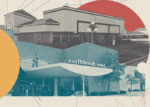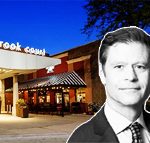It’s a story playing out across suburban America: the once-iconic shopping mall, decades removed from its glory days, falls into decay as anchor department stores become defunct and shoppers abandon storefronts for e-commerce.
For developers, this can offer opportunities, but not without risk and complication. Far from a blank canvas, the sprawling sites are often marked by years-old easements, development agreements and land grabs. And moving forward with new buildings also means gaining approval from local governments.
Yet Midwest cities and suburbs are uniquely poised for this kind of development in a way other parts of the country aren’t, Lionheart Capital principal and chief development officer Allison Greenfield explained in an interview with The Real Deal. “You couldn’t find 100 acres in the middle of Miami,” she said.
Investors in Chicago and its suburbs have shown they’re unafraid to make nine-figure proposals to revive malls, even in the face of deep and dangerous pitfalls such as local government disagreements, properties having troubled financial histories and a housing market that threatens to upend plans that seemed solid only yesterday.
They don’t always work out on the first attempt, though investors such as UrbanStreet Group based locally in Schaumburg have benefitted from projects that failed to gain traction. The firm is among the real estate players with mall properties that have worked through or run into hiccups while getting repositioned, including two where the company picked up the sites that different developers attempted to turn around without success. Brookfield Properties, owner of a north suburban mall, is another.
Nevertheless, a slew of developers are pushing forward projects they say make sense and are poised for success.
“Whenever you have people living at our projects itself, you’re going to see your coffee shops in the morning a little bit busier,” said Jonathan Rood of Pacific Retail Capital Partners, which specializes in repositioning open-air, mixed-use properties and is working on a project in Chicago’s western suburbs. “You’ll see that benefit because people want to literally live, shop, eat, work, at times, all on the campus, and so we saw a direct increase of traffic based on having the two apartment buildings come out of the ground and then be leased up there.”
Live-in anchor tenants
In the west Chicago suburb of Lombard, Southern California-based Pacific Retail arranged for developer Greystar Real Estate Partners to build two multifamily developments totaling 1,200 apartments on the site of the Yorktown Center mall. And a $100 million project from French developer Unibail-Rodamco-Westfield will add 350 apartments to the Westfield Old Orchard mall in Skokie.
While these Chicago-area sites offer plenty of space for redevelopment, it’s also important to choose the right site within a market, URW’s Geoff Mason said. The Skokie Mall is a well-positioned “gateway” city in the Chicago area, he said. The site also fits in with demographic trends of people leaving the city for the suburbs, creating residential and commercial demand, he said.
Mall owner Centennial is also hoping for more action at Hawthorn Mall in Vernon Hills, where the Dallas real estate firm recently unveiled the second phase of its $252 million redevelopment. The plan includes a total of 561 luxury apartments and a redesign to create a larger outdoor public plaza, along with a new facade and more retail, restaurant and entertainment space.
“That’s definitely one of the benefits of going to the multifamily, multiuse buildings,” Hawthorn Mall general manager Jeff Rutzen said. “We have a captive audience, it’s right on our campus. We can speak directly to them.”
The changing retail environment also lends itself to building real estate for multiple uses on a single site. But Rood said a challenge of mall redevelopment is finding the best mix of uses for the retail-led sites, saying the U.S. has been “over-retailed” since before the pandemic began. And with e-commerce, the reasons people shop are different now, Greenfield said.
“It has turned into a social activity, a reason to leave the house, a reason to enjoy the experience of trying on or taking off or touching or feeling or seeing it in real life, but not the need-based shopping that we did before,” she said. “That, I think, is where you see a giant hemorrhage in the need for commercial space — how do you adaptively reuse all this square footage that was earmarked just for necessity shopping?”
Mason also cited the move away from “fortress retail” — the classic indoor shopping mall — to sites where multiple uses are integrated in an “open and expansive” way. He added that the firm is focused on making sure the site has the right quality and square footage of retail.
City limits
Some redevelopment plays in the Chicago area have stalled due to conflict with the municipal government, as is the case with the most recent hurdle in Arlington Heights.
Officials in the northwest suburb have been trying to redevelop the 1980s-era International Plaza shopping mall for two decades. Over the years, a contract with a developer and an agreement with a major retailer have fallen through, and the property has been the subject of numerous lawsuits.
Now, a proposal from Schaumburg’s UrbanStreet Group to turn the north side of the dilapidated property into a 302-unit apartment complex, with office and retail space on the south side, has hit resistance from the village’s Board of Trustees, with some worried the developer’s plan doesn’t integrate the affordable units with the market-rate ones. UrbanStreet Group didn’t return requests for comment.
It’s not the first time UrbanStreet has swooped in after a previous redevelopment play fell through. The firm is taking a stab at redeveloping the mostly vacant Charlestown Mall in the western Chicago suburb of St. Charles. UrbanStreet is under contract to buy the mall, which covers more than 1 million square feet, from Krausz Companies. While the group plans to reposition the property with a mix of uses, it hasn’t yet put a specific proposal before the suburb’s city council.
Altogether, it’s a financial balancing act where cooperation with the local government is also essential. It requires a “feedback loop” between what is viable in terms of what the market will bear, what the city wants and what makes financial sense for the company, Greenfield suggested.
It’s difficult to finance these types of projects completely privately, “so much that it becomes an untenable business plan financially, if you don’t have a public-private partnership,” she said.
Other reasons for stalling are more opaque, but have happened at least in part due to the pandemic. City officials in Northbrook signed off on Brookfield Properties’ $250 million plan to overhaul the Northbrook Court shopping center — along with $27 million in subsidies — in 2019. Brookfield delayed implementing the plan due to the pandemic, and Northbrook officials granted Brookfield a second extension this past fall. Brookfield didn’t return a request for comment.
In some cases, it’s the mayor driving the vision for what the mall could be. Calumet City officials approved funding for a plan to turn the former Sears store at the River Oaks Center Mall into a massive entertainment center that would include an indoor water park, rock climbing, an arcade and a hotel, CBS Chicago reported.
Final plea
While it may be a hail mary for some, mall owners see redevelopment as their best bet for survival. Several suburban Chicago malls are marketing their properties as redevelopment opportunities.
Seritage Growth Properties hired CBRE to sell the Louis Joliet Mall’s former Sears store, a 16.7-acre property including a 190,000-square-foot now-empty department store and a 24,000-square-foot auto center. It’s under zoning agreements that “allow a future investor flexibility for re-tenanting the building or redeveloping it to another use, which may include multi-family development,” according to marketing materials.
Back in the northern suburbs, JLL is marketing the 423,000-square-foot Lincolnwood Town Center on behalf of loan servicer Torchlight Investors. The brokerage is advertising the 31-acre site’s redevelopment potential into a 2-million-square-foot mixed-use property.
Still, whatever sale price the shopping center fetches likely won’t be enough to cover the property’s debt — Torchlight took over the property in August 2021 after filing a $48.9 million foreclosure suit, and it could sell for as little as $30 million.
Cases like this illustrate the math and logistics behind mall redevelopment, as well as the other factors that determine how a developer might be able to “redraw the picture,” as Rood put it.
“Every asset is like a different work of art because you can appreciate it and then you step back and you’re like, wow,” Rood said.
Read more



